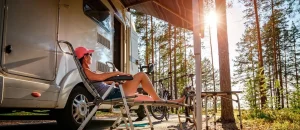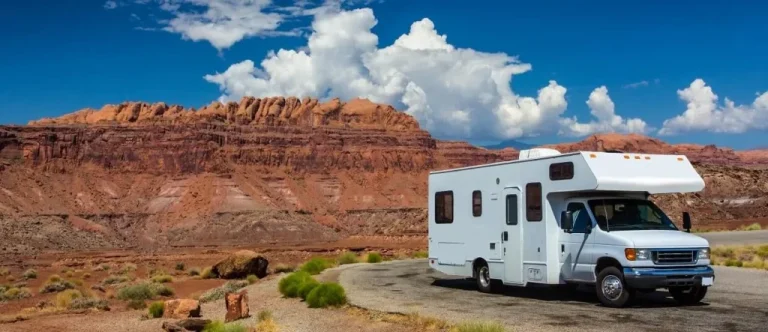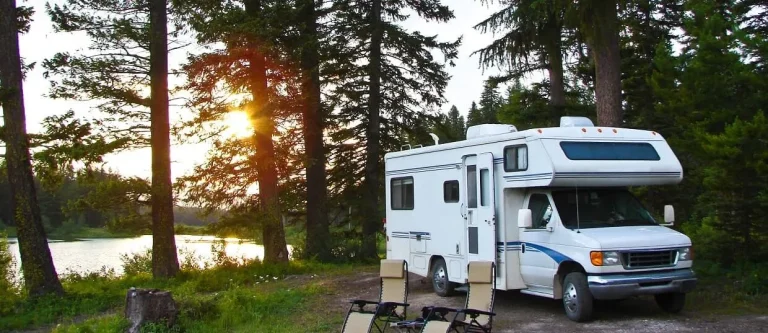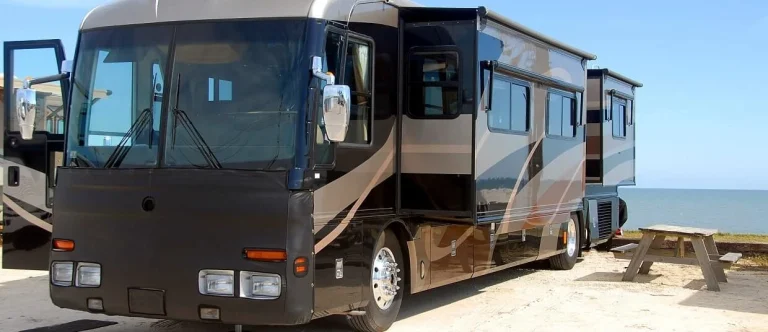From the Allegheny National Forest to the banks of Lake Erie, the state of Pennsylvania is a burgeoning ground for outdoor travelers who wish to see natural beauty and feed the need for adventure. The best way to do so without breaking the bank is surely traversing the state in an RV.
If you’re looking to purchase an RV, have recently made the purchase or you’re just looking for an RV insurance policy to protect your rig, you’re in the right place. We’ll break down the state’s minimum coverage limits, how much you’ll pay and what’s covered.
What’s Covered With Pennsylvania RV Insurance?
There are two types of RV insurance coverage you can invest in: liability only and full coverage. Similar to the auto insurance policy on your daily driver, each coverage has either limited or added protection for both you and your rig. While liability only covers other people, vehicles and property, full coverage protects nearly every aspect.
Bodily Injury Liability Coverage
Legally required for drivable RVs in Pennsylvania, bodily injury liability covers medical bills to injured people if you caused an accident or ran into someone. It can also cover lawsuits that may arise if you’re sued due to the injuries. While the state’s minimum coverages are $15,000 per person and $30,000 per accident, that may not be enough for everyone.
It’s also important to note that bodily injury isn’t required for towable RVs (in Pennsylvania or any other state), such as 5th wheels or pop-up campers, because they receive coverage from the auto policy of the vehicle towing them.
Property Damage Liability Coverage
Legally required in all Pennsylvania RV insurance policies to the minimal tune of $5,000 per accident, property damage liability helps pay for damage you cause to people’s vehicles or property, such as accidentally backing into and destroying a home’s wooden fence. As with any auto liability coverage, it only kicks in when you’re at fault and never pays for any damage your rig sustains.
Like the previous liability coverage, property damage liability is also only required for drivable RVs. Towable travel trailers also piggyback off the auto policy of the vehicle towing them, so they’ll have coverage while on the road.
However, towable travel trailers only have coverage while they’re connected to the vehicle towing them, so they’ll become uninsured the second they’re unhooked.
Uninsured/Underinsured Motorist Coverage
Uninsured or underinsured motorist coverage is the final coverage legally required in Pennsylvania. It can kick in if you get into an accident that isn’t your fault with a driver who either doesn’t have insurance or doesn’t have sufficient enough insurance to pay for damages to your RV or medical bills for injured parties in your rig.
This can help cover damage to your rig and injuries to people inside it if you’re involved in an accident with a driver who’s at fault and doesn’t have auto insurance. Many auto policies are greatly underinsured to pay for damages to RVs since they’re quite expensive to repair, especially if your rig is deemed to be totaled by your insurer.
Collision Coverage
Whether you’re at fault or not in an accident, collision coverage can pay to repair damage to your RV. So if you caused the accident, your coverage should kick in. But even if you didn’t cause it, your coverage can kick in to pay for all or part of the damage.
Comprehensive Coverage
Comprehensive coverage is also available for both drivable and towable RVs, protecting them against things that are deemed to be out of your control. It especially comes in handy when you sustain damage to your RV’s roof or awning caused by incidents like a windstorm or flood. It may also cover things like water leaks due to hitting an overpass and vandalism or theft of your RV.
Medical Payments Coverage
If anyone in your RV gets injured, whether you’re at fault or not, medical payments coverage is designed to help pay for medical expenses after the accident. Depending on your insurer, this coverage may only be available for drivable RVs since people really shouldn’t be riding in towed RVs, and anyone inside the vehicle towing an RV could already have coverage through an auto insurance policy.
Personal Effects Replacement Coverage
Personal effects replacement coverage was designed to keep the belongings inside your RV safe from damage, destruction or theft. Coverage pertains to belongings that aren’t built into your rig, including bikes attached to the back of your rig, bike racks, kayaks, clothes and electronics.
Many policy’s cap coverage at $5,000 per claim, but you may be able to enroll in up to $100,000 in coverage by adding an endorsement to your policy. This endorsement can become extremely valuable for those full-time RVers (qualifying as spending more than 150 nights per year in your RV) who have more possessions onboard.
Total Loss Replacement Coverage
Only available for newly purchased new models of RVs, this coverage is designed to reimburse you if your RV is considered totaled. Your coverage can provide you with a new and comparable model RV within the first four years, reimbursement for the original purchase price in years five to seven and the actual cash value after seven years.
Roadside Assistance
Similar to the coverage in your daily driver’s auto policy, roadside assistance is an add-on that can help pay for 24-hour assistance needed on the road. It’s mostly needed for drivable RVs since towable RVs typically don’t run into the same major issues. It can cover things like jumpstarting your engine, delivering a new battery or gas, or fixing a flat.
Towing & Labor
Also likely only needed for drivable RVs since towable RVs can already be towed by your vehicle, the towing & labor add-on can save you a significant amount of money if your drivable RV breaks down in the middle of nowhere and it must be towed to the nearest shop — which could be hundreds of miles away.
Vacation Liability Coverage
Vacation liability coverage can be added to any RV insurance policy — with the exception of full-time RVers — that’s designed to financially protect you if you accidentally cause damage to property or an injury to someone else while your RV is parked at a designated campsite. However, it can exclude undeveloped campsites located on public lands.
Is RV Insurance Required in Pennsylvania?
All RV insurance policies in Pennsylvania are legally required to include bodily injury liability coverage ($15,000 per person, $30,000 per accident), property damage liability coverage ($5,000 per accident), uninsured motorist bodily injury coverage ($15,000 per person, $30,000 per accident) and underinsured motorist bodily injury coverage ($15,000 per person, $30,000 per accident).
Although drivable RVs are legally required to maintain the aforementioned state minimum coverages within the policy, towable RVs are not legally required to have coverage because the state minimums transfer from the auto policy of the vehicle towing it.
However, your lender can legally require you to maintain full coverage (collision and comprehensive) if you still owe money to them on a loan used to purchase your RV — whether it’s drivable or towable. If you still owe them money, they still hold the title and technically still own the rights to the vehicle. They may require insurance to ensure they don’t lose out on the money owed if your RV is totaled in an at-fault accident.
Average Cost for RV Insurance in Pennsylvania
The average RV insurance cost in Pennsylvania can be anywhere from a few hundred dollars to a few thousand dollars a year. It all depends on the class of your RV, whether or not it’s drivable or towable, its value, your driving record and the amount and scope of coverage you have on your rig.
Class A motorhomes are the largest and typically the most expensive, so those will be much more expensive to insure than something like a converted van or teardrop trailer.
Part Time vs. Full Time RV Insurance in Pennsylvania
Full time RV insurance in Pennsylvania is designed for people who spend more than 150 nights per year living in their RV. It’s somewhat of a mix between auto insurance and homeowners insurance because it’s much more comprehensive in the coverages and amounts.
RV insurance will also likely cost you more if you’re a full-time RVer rather than someone who takes theirs out on the occasional weekend. That’s because people who spend more time in their RV, especially more time driving it, are more likely to get in an accident or experience a claim.
How to Get RV Insurance in Pennsylvania
Getting RV insurance is quick and easy when you use Clovered and our easy-to-use online RV insurance quoting form. All you need to do is fill in a few details about your rig and one of our licensed agents will pair you with a policy that suits your specific needs.
The editorial content on Clovered’s website is meant to be informational material and should not be considered legal advice.




